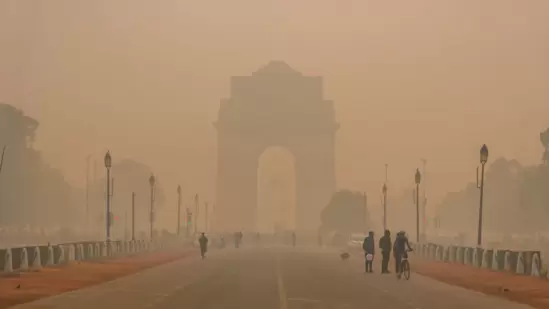
New Delhi: A report by the Indian Council of Medical Research (ICMR) revealed that 18% of total deaths in India in 2019—amounting to 1.7 million fatalities—were attributable to air pollution. Chronic obstructive pulmonary disease (COPD) emerged as the leading cause, contributing to 32.5% of these deaths, followed by ischemic heart disease (29.2%), stroke (16.2%), and lower respiratory infections (11.2%).
Health Impacts of Air Pollution
The report highlighted the significant health burden caused by poor air quality, particularly in vulnerable populations such as children and the elderly. The worsening Air Quality Index (AQI), especially in the ‘poor to severe’ range, has been linked to increased morbidity and mortality rates.
Dr. Harsh Mahajan, chair of the FICCI Health Services Committee, emphasized that prolonged exposure to Delhi’s severe air pollution could lead to both short- and long-term health effects. These include acute respiratory and cardiovascular issues, as well as chronic lung diseases, such as bronchitis, emphysema, asthma, reduced lung capacity, and even lung cancer.
Contribution to DALYs
Air pollution accounted for 11.5% of total Disability-Adjusted Life Years (DALYs) in India, reflecting the years lost to illness or disability caused by polluted air.
Sources of Air Pollution
The major contributors to air pollution in India include:
- Industrial Emissions: Fossil fuel burning, fugitive emissions, and processing.
- Vehicular Exhaust: Re-suspension of road dust and emissions.
- Construction Activities: Dust from construction and demolition.
- Burning Practices: Crop residue, garbage, and horticultural waste burning.
- Solid Fuel Use: Indoor pollution from burning biomass, including wood, coal, dung, and kerosene.
- Firecrackers: Seasonal pollution from firecracker usage.
The findings underscore the urgent need for stricter pollution control measures to safeguard public health.

